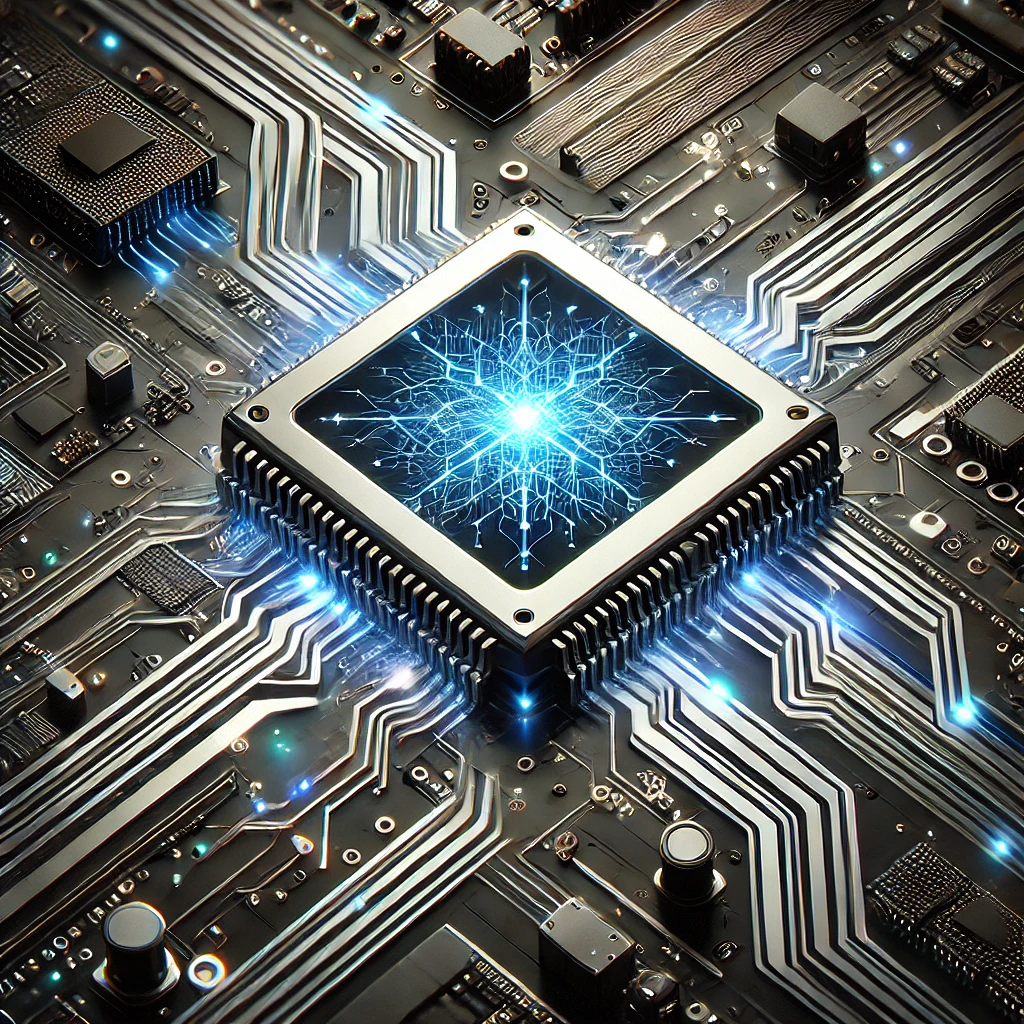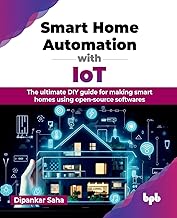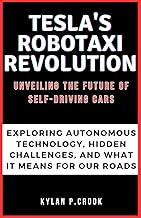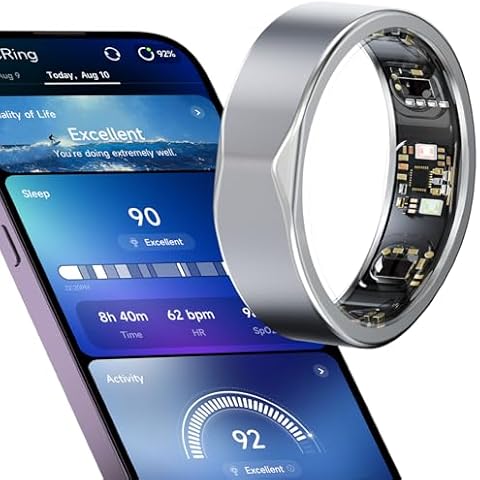Artificial Intelligence has become an integral part of our daily lives, often working behind the scenes in ways we may not even realize. From the moment we wake up until we go to bed, AI-powered technologies are enhancing our experiences, improving efficiency, and personalizing our interactions with the world around us.
Articles similar to this one can be found at: https://aiismsforbeginners.com/

Let’s explore the fascinating ways AI is reshaping the products we use every day and how it’s quietly improving our routines.
The Invisible Revolution
AI has seamlessly integrated into our daily lives, becoming an essential component of many common products and services. Our smartphones, for instance, are packed with AI capabilities that enhance nearly every aspect of their functionality.
These pocket-sized devices use machine learning algorithms to improve photo quality, forecast text as we type, and even anticipate our next actions based on our habits and patterns.
But AI’s influence extends far beyond our phones. It’s now embedded in a wide range of household items, from refrigerators to cars, thermostats to televisions.
This widespread integration, often referred to as ambient intelligence or hidden computing, is fundamentally changing how we interact with technology and our environment.
Smart Homes: The New Norm
One of the most visible areas where AI is making a significant impact is in our homes. Smart home devices are becoming increasingly common, learning from our behavior to improve energy usage and enhance comfort.
Automation comes to homes: https://amzn.to/4jbilai

Note: As an Amazon Associate, I may earn a commission from qualifying purchases.
The Nest Learning Thermostat serves as an excellent example of this technology in action. This clever device employs machine learning algorithms to understand your schedule and preferences.
It learns when you’re typically home or away, when you prefer certain temperatures, and even takes into account the weather outside.
By analyzing this data, it can potentially reduce your heating and cooling costs by up to 15%.
AI-powered security systems have also made significant strides in recent years. These advanced systems can recognize familiar faces, distinguish between pets and potential intruders, and even detect unusual sounds that might show a security threat.
Some smart lighting systems can mimic your usual patterns when you’re away, creating the illusion that someone is home and deterring potential burglars.
AI in Your Pocket: The Smartphone Revolution
Modern smartphones are perhaps the most hidden example of AI in our daily lives. These devices use AI for a multitude of functions:
Computational Photography
Smartphone cameras have come a long way in recent years, thanks in large part to AI. When you take a photo in low light conditions, AI algorithms analyze the scene in real-time, adjusting settings and even combining many exposures to produce the best possible image.
This technology allows even amateur photographers to capture stunning shots in challenging conditions.
Battery Optimization
AI helps your phone learn your usage patterns, optimizing power consumption to extend battery life. By analyzing when and how you use certain apps, your phone can allocate resources more efficiently, ensuring that you have enough battery power when you need it most.
Personalized Recommendations
From app suggestions to news articles, AI algorithms analyze your behavior to provide content tailored to your interests. This personalization extends to music streaming services, video platforms, and even shopping apps, creating a more engaging and relevant user experience.
Voice Assistants
Siri, Google Assistant, and other voice-activated AI assistants use natural language processing to understand and respond to your queries. These assistants can perform a wide range of tasks, from setting reminders and sending messages to controlling smart home devices and providing real-time information.
The Road Ahead: AI in Automotive
The automotive industry is undergoing a significant transformation thanks to AI. Advanced Driver Assistance Systems (ADAS) use AI algorithms to improve safety through features like lane departure warnings, automatic emergency braking, and adaptive cruise control.
These technologies are laying the groundwork for fully autonomous vehicles. Companies like Tesla, Waymo, and traditional automakers are investing heavily in this area, working towards a future where cars can navigate complex urban environments without human intervention.
AI is also enhancing the in-car experience. Voice-activated infotainment systems can understand natural language commands, allowing drivers to control various functions without taking their hands off the wheel.
Some vehicles can even learn your preferences, adjusting seat positions, climate settings, and music choices based on who’s driving.
See what the future holds here: https://amzn.to/3BV8YdY

Note: As an Amazon Associate, I may earn a commission from qualifying purchases.
AI in the Kitchen: Smart Appliances
Even our kitchen appliances are getting smarter thanks to AI. AI-powered refrigerators can track inventory, suggest recipes based on available ingredients, and even place online grocery orders when you’re running low on essentials.
This technology helps reduce food waste and simplifies meal planning.
Smart ovens are another area where AI is making a significant impact. These appliances can recognize the food you’re cooking and automatically adjust temperature and cooking time for optimal results.
Some models can even be controlled remotely via smartphone apps, allowing you to start dinner while you’re still at work.
AI-powered coffee makers can learn your preferences and brewing schedule, ensuring that a fresh cup of coffee is ready when you need it most. Some models can even adjust the brewing process based on factors like water quality and bean freshness to produce the perfect cup every time.
If you are a techy enthusiast, you gotta get this: https://amzn.to/40fjYfB

Note: As an Amazon Associate, I may earn a commission from qualifying purchases.
Wearable AI: Health and Fitness Revolution
In the health and fitness sector, AI is powering wearable devices that can watch vital signs, track physical activity, and even detect potential health issues. The Apple Watch Series 6, for instance, uses AI algorithms to analyze heart rhythm and detect atrial fibrillation, a potentially serious heart condition.
These devices offer more than just passive monitoring. They can provide personalized workout suggestions based on your fitness level and goals, offer stress management techniques tailored to your needs, and even alert emergency services if they detect a fall or other potential emergencies.
AI-powered fitness apps can analyze your workout data to create personalized training plans, adjusting difficulty and intensity based on your progress. Some apps use computer vision to analyze your form during exercises, providing real-time feedback to help prevent injuries and improve effectiveness.
Wear your AI powered gadgets like this: https://amzn.to/40k9kEt

Note: As an Amazon Associate, I may earn a commission from qualifying purchases.
AI in Entertainment: Personalized Experiences
The entertainment industry has embraced AI to create more engaging and personalized experiences for consumers. Streaming services like Netflix and Spotify use sophisticated recommendation algorithms to suggest content based on your viewing or listening history.
Video games are also leveraging AI to create more immersive and dynamic experiences. AI-powered non-player characters (NPCs) can adapt their behavior based on player actions, creating more realistic and challenging gameplay.
Some games even use procedural generation techniques to create unique environments and storylines for each playthrough.
Virtual and augmented reality technologies are also benefiting from AI advancements. AI algorithms can enhance the realism of virtual environments, improve gesture recognition for more natural interactions, and even generate realistic avatars based on user data.
AI in Education: Personalized Learning
The education sector is harnessing the power of AI to create more effective and personalized learning experiences. Adaptive learning platforms use AI to analyze a student’s performance and tailor content to their person needs and learning style.
AI-powered tutoring systems can provide personalized feedback and support, helping students work through challenging concepts at their own pace. These systems can identify areas where a student is struggling and provide targeted resources and exercises to improve understanding.
Language learning apps like Duolingo use AI to adapt lessons based on a user’s progress, focusing on areas that need improvement and reinforcing concepts that have been mastered. This personalized approach can lead to more effective and effective language acquisition.
AI in Retail: Enhancing the Shopping Experience
AI is transforming the retail industry, both online and in physical stores. E-commerce platforms use AI to provide personalized product recommendations, improve pricing strategies, and improve search functionality.
In brick-and-mortar stores, AI-powered systems can analyze foot traffic patterns to improve store layouts and staffing. Some retailers are experimenting with AI-powered checkout-free stores, where computer vision and sensor fusion technologies allow customers to simply pick up items and leave, with payment processed automatically.
Virtual try-on technologies, powered by AI and augmented reality, allow customers to see how clothing, makeup, or accessories would look on them without physically trying them on. This technology is particularly useful for online shopping, helping to reduce returns and improve customer satisfaction.
AI in Finance: Smarter Money Management
The financial sector has embraced AI to improve services and enhance security. AI-powered chatbots and virtual assistants can handle basic customer inquiries, freeing up human staff to deal with more complex issues.
Robo-advisors use AI algorithms to create and manage investment portfolios based on an person’s financial goals and risk tolerance. These services can provide personalized investment advice at a fraction of the cost of traditional financial advisors.
AI is also playing a crucial role in fraud detection and prevention. Machine learning algorithms can analyze transaction patterns to identify potentially fraudulent activity in real-time, helping to protect consumers and financial institutions.
The Challenges Ahead
While the integration of AI into everyday products offers many benefits, it also presents several challenges that need to be addressed:
Privacy Concerns
As AI-powered devices collect and process large amounts of personal data, there are growing concerns about privacy and data security. Ensuring that this data is protected from breaches and misuse is crucial for maintaining consumer trust.
AI Bias
AI systems can inadvertently perpetuate or even amplify existing biases if they are trained on biased data or designed without considering diverse perspectives. Addressing this issue needs careful attention to data collection and algorithm design.
Job Displacement
As AI automates more tasks, there are concerns about potential job losses in certain sectors. While AI is likely to create new job opportunities, there may be a period of disruption as the workforce adapts to these changes.
Digital Divide
The benefits of AI-powered technologies may not be equally accessible to all segments of society. This could exacerbate existing inequalities if steps are not taken to confirm widespread access to these technologies.
Ethical Considerations
As AI systems become more advanced and autonomous, there are important ethical questions to consider. For example, how do we confirm that AI-powered decision-making systems are fair and transparent?
Embracing the AI Revolution
Despite these challenges, the trend towards AI-enhanced everyday products is likely to continue. As AI technologies become more sophisticated and accessible, we can expect to see even greater integration into the objects and services we use daily.
To make the most of this AI revolution:
Stay Informed
Keep up with the latest AI developments and understand how they might affect your life. This knowledge will help you make informed decisions about which AI-powered products and services to adopt.
Prioritize Privacy
Be mindful of the data you’re sharing and use privacy settings when available. Consider the trade-offs between convenience and privacy when using AI-powered services.
Embrace Learning
Don’t be afraid to experiment with new AI-powered products and features. Many of these technologies have a learning curve, but the benefits can be significant once you become familiar with them.
Be Critical
While AI can be incredibly helpful, it’s not infallible. Use your judgment and don’t blindly trust AI recommendations.
Understanding the limitations of AI can help you use these technologies more effectively.
Consider the Ethical Implications
As consumers, we have the power to influence how AI is developed and implemented. Support companies that prioritize ethical AI development and use your purchasing power to encourage responsible innovation.


Frequently Asked Questions
How does AI improve smartphone cameras?
AI enhances smartphone cameras by analyzing scenes in real-time, adjusting settings, and combining many exposures to produce high-quality images, especially in challenging lighting conditions.
Can AI-powered thermostats really save money on energy bills?
Yes, smart thermostats like the Nest Learning Thermostat can potentially reduce heating and cooling costs by up to 15% by learning your preferences and optimizing energy usage.
Are AI-powered security systems more effective than traditional ones?
AI-powered security systems can be more effective as they can recognize familiar faces, distinguish between pets and intruders, and detect unusual sounds, providing more accurate and context-aware protection.
How does AI personalize content recommendations on streaming services?
AI analyzes your viewing or listening history, preferences, and behavior to suggest content that you’re likely to enjoy, creating a more personalized entertainment experience.
Can AI-powered fitness trackers detect health issues?
Some advanced AI-powered wearables, like the Apple Watch Series 6, can detect potential health issues such as atrial fibrillation by analyzing heart rhythm data.
How is AI changing the automotive industry?
AI is enabling advanced driver assistance systems, paving the way for autonomous vehicles, and enhancing in-car experiences through voice-activated controls and personalized settings.
What are the privacy concerns associated with AI in everyday products?
The main privacy concerns include the collection and storage of personal data, potential data breaches, and the use of personal information for targeted advertising or other purposes without explicit consent.
How can AI improve education?
AI can create personalized learning experiences by adapting content to person student needs, providing targeted feedback, and identifying areas where students may need additional support.
What is the role of AI in fraud detection in financial services?
AI algorithms can analyze transaction patterns in real-time to identify potentially fraudulent activity, helping to protect consumers and financial institutions from financial crimes.
How can consumers confirm they’re using AI responsibly?
Consumers can use AI responsibly by staying informed about AI developments, being mindful of data sharing, using privacy settings, and supporting companies that prioritize ethical AI development.
Key Takeaways
- AI is seamlessly integrated into many everyday products, from smartphones to home appliances, often working behind the scenes to enhance our daily experiences.
- Smart home devices use AI to improve energy usage, enhance security, and provide personalized comfort.
- Smartphones leverage AI for improved photography, battery life, personalized recommendations, and voice assistance.
- The automotive industry is using AI to improve safety features and develop autonomous vehicles.
- AI-powered wearables are improving health and fitness tracking, offering personalized insights and even detecting potential health issues.
- AI is transforming various sectors including entertainment, education, retail, and finance, creating more personalized and effective experiences.
- While AI offers many benefits, it also presents challenges related to privacy, bias, job displacement, and ethical considerations.
- Staying informed, prioritizing privacy, embracing learning, and thinking critically are key to making the most of the AI revolution in everyday products.
A great cost-saving tool you need can be found at: https://galaxy.ai/?ref=gary
This post contains links. If you click on these links and make a purchase, I may earn a commission at no additional cost to you. Rest assured, I only recommend products or services I believe will add value to my readers. As an Amazon Associate, I may earn a commission from qualifying purchases.
Articles similar to one can be found at: https://aiismsforbeginners.com/


Leave a Reply